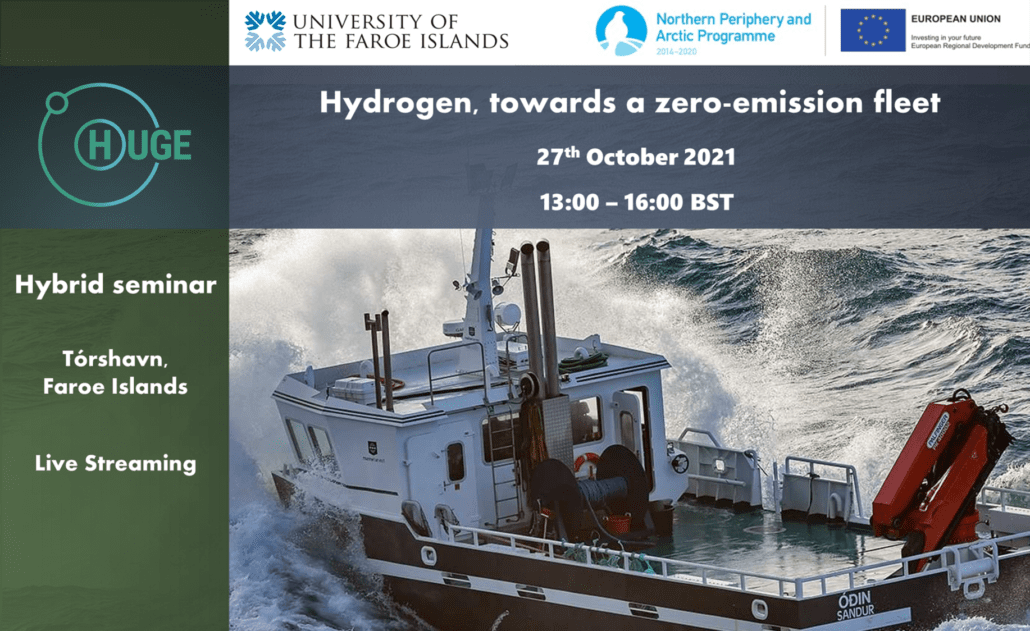
The transition from fossil fuels to zero-emission fuels in the marine sector is a challenging task. Whilst onshore development of renewable energy sources and full electrification of the energy sector is taking place, other solutions have to be developed for the marine sector. Electric boats and ferries are being developed, but for more extensive activities we are looking at hydrogen-based fuels – pressurized hydrogen, cryogenic hydrogen or ammonia. The Faroe Islands are electrically isolated – i.e. no power connections to neighbouring countries. With increasing amounts of intermittent renewable energy sources, especially wind energy, solutions must be found to store energy and stabilize the power system. By production of green hydrogen from surplus wind energy, the electrolyser, in addition to producing hydrogen, can also deliver system services to the powergrid. Register for the event Agenda (BST)
- 13:00 – 13:10: Welcome & HUGE Introduction; Desislava Todorova, HUGE Project Coordinator
- 13:10 – 13:25: Hydrogen for North Sea ports and harbours; Jon Jordan, NS HyMAP
- 13:25 – 13:40: Energy transition on the Faroes – status and future; Kári Mortensen, Dept. Head, Faroese Environment Agency
- 13:40 – 13:55: From oil to renewable energy – challenges and opportunities; Janus Thomsen, CEO, Effo
- 13:55 – 14:15: Coffee and Networking
- 14:15 – 14:30: Burðardygt Vinnulív – The power of collaboration; Ana Holden Peters, Sustainability consultant
- 14:30 – 14:45: Constructing the first Faroese zero-emission aquaculture workboat; Richard Mortensen, Head of Sales and Procurement, MEST
- 14:45 – 15:30: HOT Service – Faroese case study overview; TEA & HUB Application to Faroese Case study
- 15:30 – 16:00: Q&A and Closing Remarks
